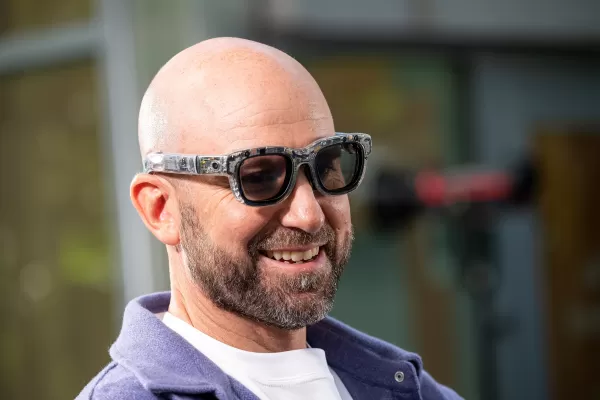Meta Offers High Pay for AI Talent, Denies $100M Signing Bonuses

Meta is attracting AI researchers to its new superintelligence lab with substantial multimillion-dollar compensation packages. However, claims of $100 million "signing bonuses" are untrue, per a recruited researcher and remarks from a leaked internal meeting.
In a leaked company-wide meeting reported by The Verge on Thursday, Meta executives addressed questions about bonuses OpenAI CEO Sam Altman claimed Meta offered top researchers.
Meta's CTO Andrew Bosworth suggested that only a select few senior leaders might receive such high figures, but clarified that "the actual terms of the offer" were not a "sign-on bonus." Instead, they include various components. Typically, tech firms provide senior leaders with significant restricted stock unit (RSU) grants tied to tenure or performance.
A four-year compensation package nearing $100 million for a top executive is plausible at Meta. Most of Meta's named officers, including Bosworth, have earned between $20 million and $24 million annually for years.
Bosworth reportedly noted at the meeting that Altman was "suggesting that we're doing this for every single person." He added, "The market's competitive, but not that extreme." (Meta did not immediately respond to inquiries.)
On Thursday, researcher Lucas Beyer announced he was leaving OpenAI's Zurich office, along with two colleagues, to join Meta. He tweeted: "1) yes, we will be joining Meta. 2) no, we did not get 100M sign-on, that's false." (Beyer declined further comment to TechCrunch.)
Beyer's focus on computer vision AI aligns with Meta's goals of advancing entertainment AI, not productivity AI, as Bosworth reportedly stated. Meta has already invested in this space with Quest VR headsets and AI-enhanced Ray-Ban and Oakley glasses.
Meta is targeting high-caliber AI talent in a competitive market, justifying significant pay packages. As TechCrunch first reported, Meta hired OpenAI's Trapit Bansal, renowned for his work on AI reasoning models, who joined OpenAI in 2022.
Scale co-founder and CEO Alexandr Wang is likely receiving over $100 million from Meta's acquisition of a 49% stake in his company. As previously reported, Meta's $14 billion payment is distributed as a cash dividend to shareholders, with Wang likely holding a significant share.
While Meta isn't offering $100 million bonuses broadly, it is investing heavily in AI talent acquisition.
An investor shared with TechCrunch that an AI researcher declined an $18 million offer from Meta, opting for a smaller but attractive deal from Mira Murati's Thinking Machines Lab, a trending AI startup.
Related article
 Nonprofit leverages AI agents to boost charity fundraising efforts
While major tech corporations promote AI "agents" as productivity boosters for businesses, one nonprofit organization is demonstrating their potential for social good. Sage Future, a philanthropic research group backed by Open Philanthropy, recently
Nonprofit leverages AI agents to boost charity fundraising efforts
While major tech corporations promote AI "agents" as productivity boosters for businesses, one nonprofit organization is demonstrating their potential for social good. Sage Future, a philanthropic research group backed by Open Philanthropy, recently
 Top AI Labs Warn Humanity Is Losing Grasp on Understanding AI Systems
In an unprecedented show of unity, researchers from OpenAI, Google DeepMind, Anthropic and Meta have set aside competitive differences to issue a collective warning about responsible AI development. Over 40 leading scientists from these typically riv
Top AI Labs Warn Humanity Is Losing Grasp on Understanding AI Systems
In an unprecedented show of unity, researchers from OpenAI, Google DeepMind, Anthropic and Meta have set aside competitive differences to issue a collective warning about responsible AI development. Over 40 leading scientists from these typically riv
 ChatGPT Adds Google Drive and Dropbox Integration for File Access
ChatGPT Enhances Productivity with New Enterprise Features
OpenAI has unveiled two powerful new capabilities transforming ChatGPT into a comprehensive business productivity tool: automated meeting documentation and seamless cloud storage integration
Comments (0)
0/200
ChatGPT Adds Google Drive and Dropbox Integration for File Access
ChatGPT Enhances Productivity with New Enterprise Features
OpenAI has unveiled two powerful new capabilities transforming ChatGPT into a comprehensive business productivity tool: automated meeting documentation and seamless cloud storage integration
Comments (0)
0/200

Meta is attracting AI researchers to its new superintelligence lab with substantial multimillion-dollar compensation packages. However, claims of $100 million "signing bonuses" are untrue, per a recruited researcher and remarks from a leaked internal meeting.
In a leaked company-wide meeting reported by The Verge on Thursday, Meta executives addressed questions about bonuses OpenAI CEO Sam Altman claimed Meta offered top researchers.
Meta's CTO Andrew Bosworth suggested that only a select few senior leaders might receive such high figures, but clarified that "the actual terms of the offer" were not a "sign-on bonus." Instead, they include various components. Typically, tech firms provide senior leaders with significant restricted stock unit (RSU) grants tied to tenure or performance.
A four-year compensation package nearing $100 million for a top executive is plausible at Meta. Most of Meta's named officers, including Bosworth, have earned between $20 million and $24 million annually for years.
Bosworth reportedly noted at the meeting that Altman was "suggesting that we're doing this for every single person." He added, "The market's competitive, but not that extreme." (Meta did not immediately respond to inquiries.)
On Thursday, researcher Lucas Beyer announced he was leaving OpenAI's Zurich office, along with two colleagues, to join Meta. He tweeted: "1) yes, we will be joining Meta. 2) no, we did not get 100M sign-on, that's false." (Beyer declined further comment to TechCrunch.)
Beyer's focus on computer vision AI aligns with Meta's goals of advancing entertainment AI, not productivity AI, as Bosworth reportedly stated. Meta has already invested in this space with Quest VR headsets and AI-enhanced Ray-Ban and Oakley glasses.
Meta is targeting high-caliber AI talent in a competitive market, justifying significant pay packages. As TechCrunch first reported, Meta hired OpenAI's Trapit Bansal, renowned for his work on AI reasoning models, who joined OpenAI in 2022.
Scale co-founder and CEO Alexandr Wang is likely receiving over $100 million from Meta's acquisition of a 49% stake in his company. As previously reported, Meta's $14 billion payment is distributed as a cash dividend to shareholders, with Wang likely holding a significant share.
While Meta isn't offering $100 million bonuses broadly, it is investing heavily in AI talent acquisition.
An investor shared with TechCrunch that an AI researcher declined an $18 million offer from Meta, opting for a smaller but attractive deal from Mira Murati's Thinking Machines Lab, a trending AI startup.
 Nonprofit leverages AI agents to boost charity fundraising efforts
While major tech corporations promote AI "agents" as productivity boosters for businesses, one nonprofit organization is demonstrating their potential for social good. Sage Future, a philanthropic research group backed by Open Philanthropy, recently
Nonprofit leverages AI agents to boost charity fundraising efforts
While major tech corporations promote AI "agents" as productivity boosters for businesses, one nonprofit organization is demonstrating their potential for social good. Sage Future, a philanthropic research group backed by Open Philanthropy, recently
 Top AI Labs Warn Humanity Is Losing Grasp on Understanding AI Systems
In an unprecedented show of unity, researchers from OpenAI, Google DeepMind, Anthropic and Meta have set aside competitive differences to issue a collective warning about responsible AI development. Over 40 leading scientists from these typically riv
Top AI Labs Warn Humanity Is Losing Grasp on Understanding AI Systems
In an unprecedented show of unity, researchers from OpenAI, Google DeepMind, Anthropic and Meta have set aside competitive differences to issue a collective warning about responsible AI development. Over 40 leading scientists from these typically riv
 ChatGPT Adds Google Drive and Dropbox Integration for File Access
ChatGPT Enhances Productivity with New Enterprise Features
OpenAI has unveiled two powerful new capabilities transforming ChatGPT into a comprehensive business productivity tool: automated meeting documentation and seamless cloud storage integration
ChatGPT Adds Google Drive and Dropbox Integration for File Access
ChatGPT Enhances Productivity with New Enterprise Features
OpenAI has unveiled two powerful new capabilities transforming ChatGPT into a comprehensive business productivity tool: automated meeting documentation and seamless cloud storage integration





























